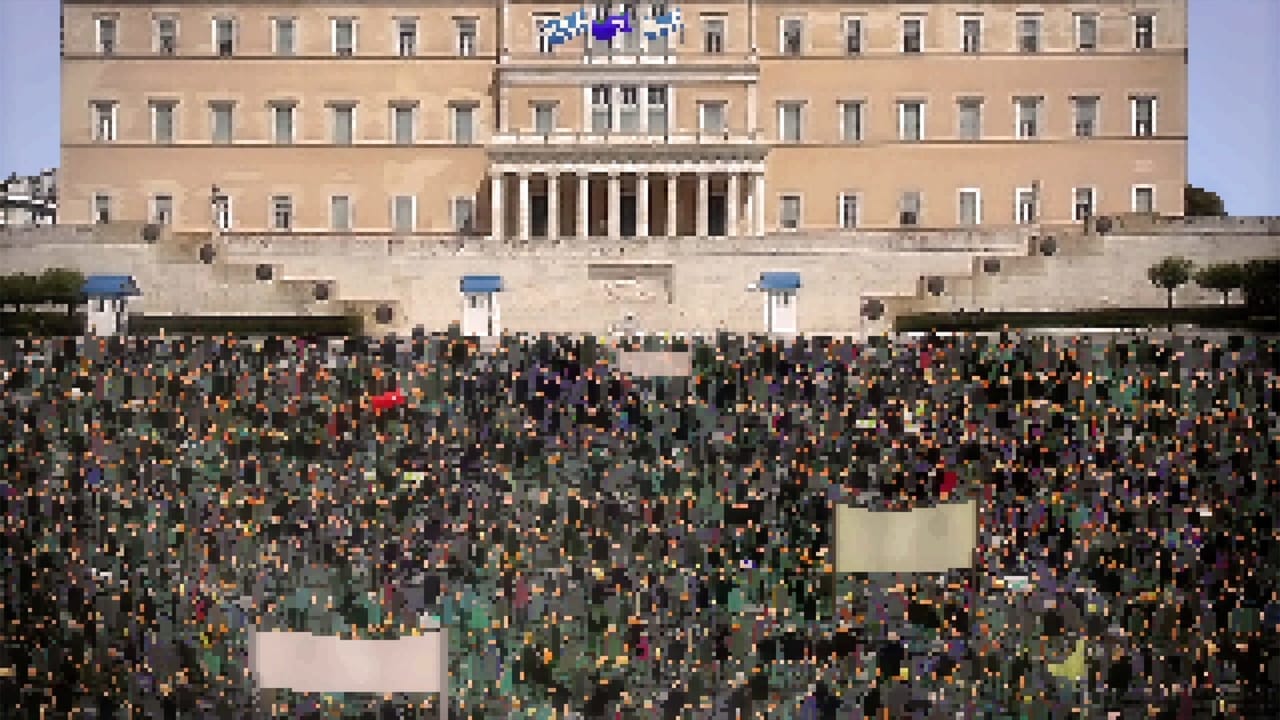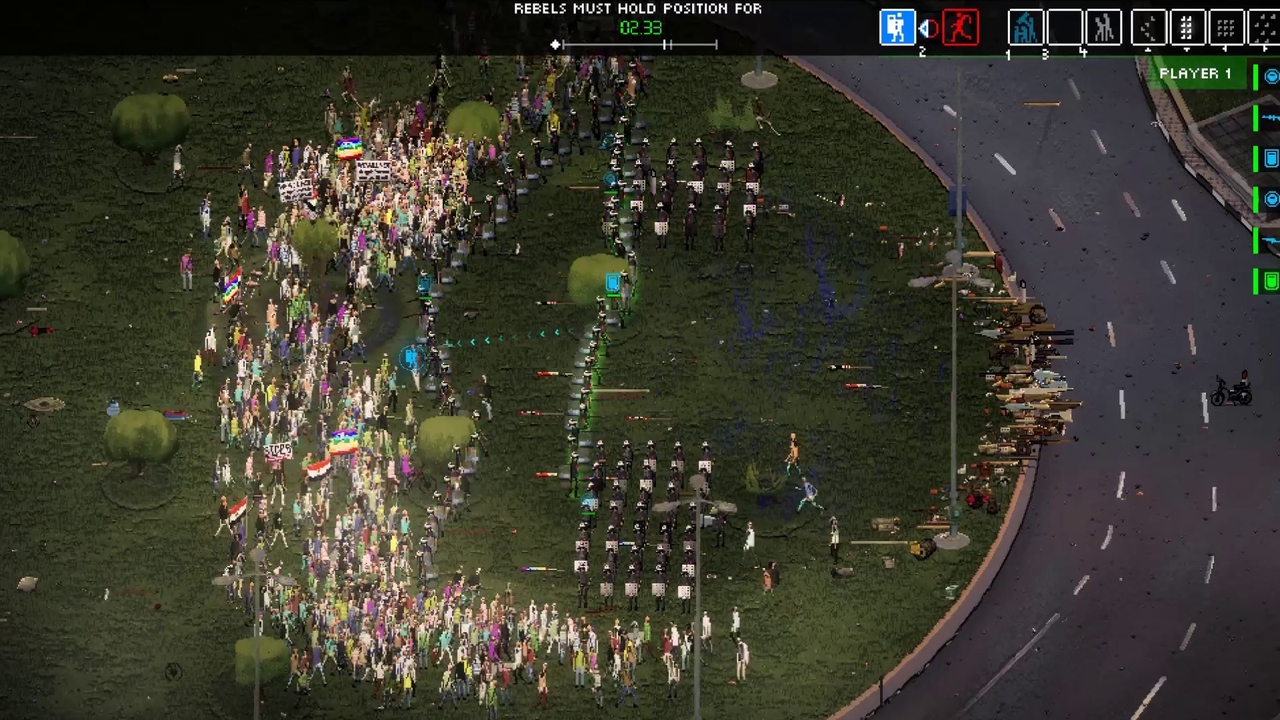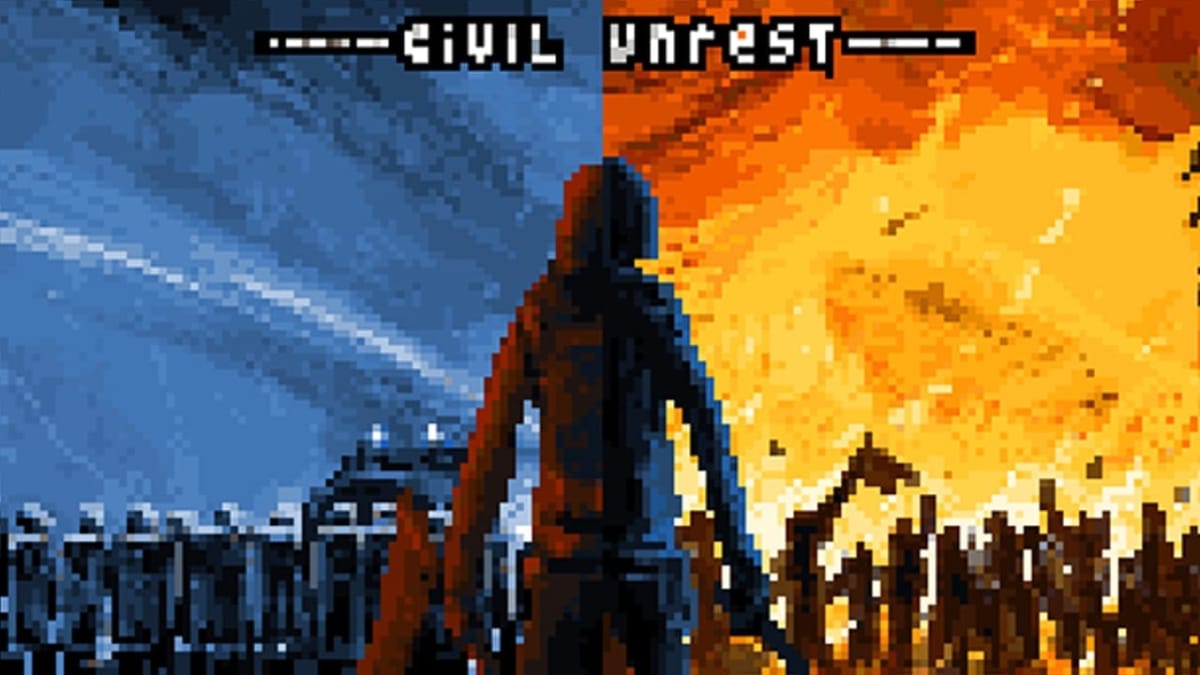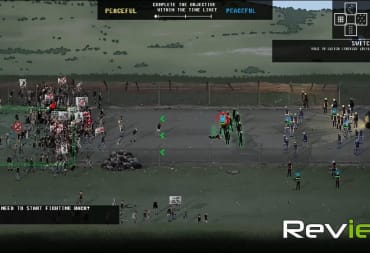It is almost impossible to escape the modern day grind of sociopolitical analysis these days. The constant divisiveness between political affiliations, the rise of misinformation and the emotionally charged debates leave us in a world of confusion. What’s worse, we see that emotion boil over into a chaotic storm of rage against the machine, a fight over oppression and overt power plays. This form of iconoclastic push back against that has now become the norm in a volatile political landscape, where convictions and logic are often trumped by our own biased passions and beliefs.
These form of protests, civil or not, are already pre-judged by our dispositions and political views, already reaffirming our bias to the world around us. Often this leaves us wanting escapism to calm the tensions of our day to day existence. However, even today's games are charged with being too political - a charge that is odd considering their function of providing both entertainment and new points of view. Politics being the centerpiece of video games is an old hat, both seriously and in jest such as the Communist Mario memes. It is only recently where we see developers begin to explore the sociopolitical upheavals of the world in unique ways that challenge our perspectives, often in ways that make us uncomfortable.
One recent indie title taps into this maelstrom by providing us an interactive window to our personal political bias. That is RIOT – Civil Unrest, a game first conceived by Italian developer Leonard Menchiari over his experiences with the No TAV movement in his home country. RIOT allows us to play as both protesters and police with a rudimentary real-time strategy game, allowing us to make decisions for either side in a state of escalating chaos. Through the limited playtime I’ve had with this early access title, we have a window of political upheaval that the gaming world needs more of; a game that is not afraid of being political in the sense of exposing our own political bias.
In the age of fake news and feelings, it's hard to think of a game being timelier. Often folks scorn games that inject real-world sociopolitical upheaval into their titles. Lately, it has gone a step further, with many politicizing games for their portrayal of fictionalized events or characters. The arguments of “political propaganda” from the likes of Horizon: Zero Dawn, Mafia III and Wolfenstein II only fuel the disruptive rhetoric. This all comes in different flavors as well; Horizon was criticized for it's "feminist agenda" in the dark corners of the internet, accusing the character of Aloy being a sort of weaponized torpedo to rebuke the belief that a male protagonist is needed, a physical "virtue signal" to feminists worldwide. Wolfenstein II was criticized for its advertising campaign and subsequently its portrayal of fascism; including the apathy of many against fascism found in the United States - particularly it's Roswell level - while poking fun at the ridiculous rhetoric of the Nazi's and the quiet obedience that gives them power. Mafia III was heavily criticized for setting a game to a time period where racism was part of the reality of being black, yet many saw it as a purposeful attempt to inflict "white guilt" on the game playing populace by being forced upon the player.
This sort of demonizing of titles due to conflicts with the player really falls upon the politics of identity of the player itself. It is on the one hand our projection of our personal biases toward such a point of view, on the other our perspective of it's handling in the product itself. Politics and gaming is always a high-wire act between commercial art and artistic expression, but we often forget that games, much like any form of media, can carry political subtext regardless of their entertainment value, one that often doesn't detract from the gaming experience. These games are also not really attacking gaming or subsequently the gaming audience, but rather they are exposing gaming to something beyond their role of being a product of pure entertainment.

To put it another way, are games political in the sense of being purposeful in their showcasing of politicized themes, ideas or events, or are they political because we perceive them to be? RIOT walks this tightrope to a point but Menchiari makes it clear in the game's description that his work is about the perspectives of the player when it comes to real-world civil unrest. “RIOT- Civil Unrest presents the player with the opportunity to experience both sides of the fight – a fight in which there really are no winners.” It is a clear statement that is not just an a-political stance, but one that allows the player to fulfil their own experience in a game dealing with sensitive subject matter. It is also a statement of resound truth as well; real riots and protests are often a zero-sum game for all participants as the breakdown of order and a removal of justice causes more pain for those involved. Even civil disobedience, going so far back as the Salt Marches, were not without violent consequences. Peaceful protests are always ideal, but it is an ideal that often clashes with the mob, more so than they clash with the police.
RIOT taps into this issue of personal perspective greatly. Each level is organized chaos, a ticking time bomb waiting to go off as both police and protesters protect themselves in a situation that neither can win. Part of what makes RIOT so fascinating is this bid for neutrality. The game itself is completely wordless; pixelated characters shout and yell, police and protesters clash as the tension grows between the four major campaigns, each representing real-life protests that have often ended in bloodshed. Players choose to be the police or the protesters, can act violently or passively, and with their selected side attempt to sway the public opinion for further advantages. Property damage, police brutality, arrests, and deaths become points against a chosen side by the media, who in the major campaigns can provide advantages or disadvantages based on the public mood.
While their role is negligible in game terms, the context from a thematic stance is one that is both strong and relevant to the portrayal of events today. Both sides also play differently to meet their end goals. The police are usually smaller in number but have access to more weapons and tools to pacify a crowd. Non-lethal arrests and riot gear, to rubber bullets and tear gas. Rioters have many homemade options, from bullhorns to rally large crowds, cameras to catch acts of police brutality, and rocks and firebombs for the more violent approach. The larger numbers of rioters are often an amorphous blob of people, swarming like wasps across the fields as small lines of police attempt to force them back. There is a sense of uncertainty across each level; a dread that at any moment, either side will turn violent and overwhelm the opposing force.

For some levels violence is a requirement, once again showing how quickly even the most peaceful of protests devolve. The singular levels, representing several demonstrations across the globe as a one off-scenario are the most tension-filled as the main objective is often just occupying a piece of land on the map. Will peace prevail, or will conflict arise? This fluctuation of the power dynamics between the two sides is the greatest strength of RIOT. It takes events ripped from the world headlines, and through its indifferent lens, it allows players to not only play tactician with their choices but reflect on the repercussions of their actions.
While thematically RIOT is strong in this way, there are issues in the end with the gameplay. RIOT is a raw product, a work a work-in-progress for the small Italian team for a few years now. Content has been semi-regularly updated but often it is riddled with bugs and glitches that do hamper the mission to mission experience. Most of the game’s options, while robust, often fall prey into the “overwhelm” strategies often associated with RTS games. Many levels also play similarly to each other - often some variant of "occupy a specific section of the map" - despite attempts at diversifying the in-game objectives. Some levels, especially on the harder difficulties, are impossible to win as the protesters or police because of a heavily stacked deck of shock troops, from horse-riding police officers, pipe bombers, and tanks. This, of course, seems to be purposeful, once more reflecting the original mandate of there being no winners, but while in real life riots may be unfair and chaotic, for a tactical game it becomes more of an annoying feature versus overcoming a great challenge.
This disconnect between its status as a product and its status as a game needs to be noted. RIOT's true value is the feelings it conjures in the hands of the player; the intent of their actions and how it plays out on the screen. It's a victimless crime to cause atrocities and chaos in a game like RIOT, but the game makes you question what decisions are best in the end. What atrocities are appropriate or justified for your goals? Would you win a level at all costs because it's a game, or because you wish to maintain order or chaos? Winning a level for the purposes of the game is easy to do, but its an empty win, one that misses the point of what RIOT is trying to do in confronting the player's political perspectives. The authorial mandate is to experience the fight on both sides, and in so doing it challenges players to consider their own perspectives in a political way.
Menchiari and his team have certainly provided a game that is as timely as it gets in an increasingly politically charged environment. At its core, it is a simple tactical game with a lot of promise attached to it but the concept and theme of RIOT are what truly make it stand out beyond being another indie title. It is a game designed to make its players think, make them go beyond the base thoughts of it being a game with a timely subject matter. RIOT makes the player confirm or confront the inherent bias of those playing it, providing a window to our own inner perspectives; our own personal identity in ways we may not expect.
Have a tip, or want to point out something we missed? Leave a Comment or e-mail us at tips@techraptor.net








